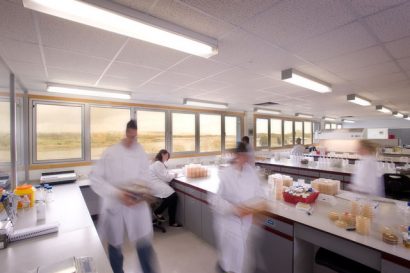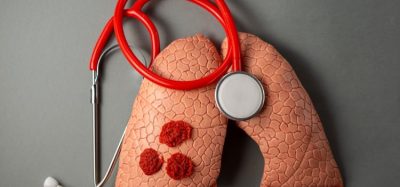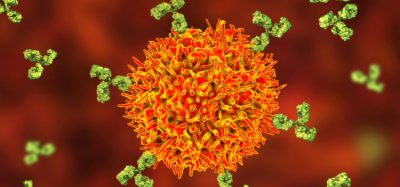How to conduct first in human clinical trials: An interview with Richmond’s CEO
Posted: 21 April 2017 | Niamh Marriott (European Pharmaceutical Review) | 1 comment
European Pharmaceutical Review caught up with Richmond Pharmacology’s CEO, Dr Jorg Taubel, to talk pioneering UK based first-in-human clinical trials…


Richmond Pharmacology specialise in conducting complex and cutting edge trials, often in crucial disease areas such as oncology and amyloidosis. The company conducts approximately 10% of all Phase I studies performed in the UK and 1 in every 100 studies worldwide. We caught up with their CEO to find out more…
When was Richmond pharmacology formed and what are its main goals?
Richmond is a clinical trials company which occupies a space between the 10-12 commercial trial companies and the 60 or so academic research facilities of NHS and Universities.
Our offering responds to changes in our market where
- Tighter regulations are improving quality and safety of these studies
- That however, has increased the administrative and operational burden which has temporarily resulted in significant delays and an increase in cost using the traditional templates.
- We at Richmond have found a way to achieve highest quality results (i.e. reproducible and reliable) whilst at the same time improving safety for the participants by innovating the way in which we run our programs.


“Richmond is about the creation of knowledge. We as a group are working in a very interesting space in clinical research. We are often the people who put a drug first into man. And, if successful, that means there will be further trials downstream. In the UK, we have an incredibly important and vibrant resourceful life sciences sector, supported by one of the world’s best regulatory agencies, the MHRA. We want to make an important contribution to life sciences in the UK, and indeed in the world.”
There are 3 things that we do:
- Adaptive studies combining a series of studies which are typically carried out when new potential medicines are tested in man for the first time. We have developed an easy to follow protocol template which focusses on principles and flow charts outlining rather than going into finite detail. Particular emphasis is given to describe the way the study is managed and by whom and to define a “worst case” i.e. we agree with the Ethics Committee and the Regulatory agency how much we give at most, how many patients we recruit at most and exactly what happens if the medicine is less well tolerated than we think it will be. We have successfully worked in developing this for over a decade and it is a tried and tested concept.
- We add cardiac safety assessments and ethnic comparisons (to check whether there is any differences of note). We are world experts in these specialty areas and we bring this expertise even to the first studies giving the companies we work for a competitive advantage.
- We have a unique database of around 250,000 willing participants. Most researches find people with a disease and then ask them to participate. We do this the other way round: we find people who want to participate in a trial and then match them with a trial. This allows us to predict the time to identify participants very reliably.
How do you determine safety/ efficacy in a Phase I clinical trial?
Studies are always approved by the National Ethics Committees managed by the Health Research Authority (HRA) and the Medicines and Healthcare products Regulatory Agency (MHRA). There are additional approvals in special circumstances such as for studies involving NHS resource or radiation.
Sponsors provide evidence of extensive non-clinical studies to explain the mechanism by which the drug works and to have some assurance that it is not harmful to humans and what undesired effects may be if any.
As risk assessment is an important element of a study protocol, i.e. a discussion of risk and benefit taking into account all the information obtained up to that point. This is followed by the implementation of a risk management plan.
First in Human trials provide a challenge in that one has never tried the potential new medicine in a human being so one has to extrapolate what will happen. We normally do this very well, but it is never certain as there is no other mammal that is like humans exactly. So we must be prepared for something unexpected to happen, however rare.
The approach we take is that we start from the worst possible outcome and build over safety measures and resources around that so that we can adequately respond in the context of the unlikely happening.
What safety protocols exist for first-in-human trials?


The most important safety feature is prevention.
We have highly trained doctors and staff and we have a very disciplined crew following very sensible and strict rules. We have an incident reporting system which reviews any deviations in detail to make sure we constantly improve process and train our staff.
We have a fully-fledged emergency team in house. We are embedded in the Guy’s and Kings Campus and have an agreement with the hospital to support us. Again the most important aspect here is having access to advice early on, so that an emergency can be averted. Emergencies in trial usually don’t come out of the blue.
How many patients do you study and for how long?
Length of studies and number of people varies in accordance with what is tested.
Generally one expects about 100-150 healthy volunteers (phase I) plus studies in patients enrolling 50-250 people to have proof of mechanism (phase II). I.e. to get to a point at which larger trials are conducted in a more normal clinical setting as definitive proof of the new Medicine (phase III).
Why did you choose early stage clinical research as your focal point?


Richmond’s CEO Dr Jorg Taubel
We are active in all phases of clinical trials. We are specialised in running early phase trials because we like to work in this area. There are not so many specialists in the area and it makes our work valuable and very satisfying.
“Richmond is a collaborative business, through and through.”
It is very pleasing to see a medicine that was first tried in man by us to reach the market.
To find out more about the research and trials conducted by Richmond, go to: http://www.richmondpharmacology.com










Do you have experience of Phase II trials of bioactive devices (e.g. anti-infective urinary catheter)? If so do you publish any advice on this topic? In particular there is a “grey area” with these devices, that are not drug delivery, and MHRA is unclear as to how to view them (drug or device).